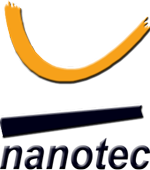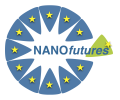WHO WE ARE
Advanced Materials, Nuclear Technology and Nano/Biotechnology. University of Burgos
Network's coordinator group
- Coordinator: Santiago Cuesta López
- Members: Santiago Cuesta, M. Begoña Torres, Desiré Granado, Lorena Romero, Sergio Courting, Ekhi Arroyo, Jordi Fradera, Oscar Tapia, Roberto Serrano.
- Research lines: Multiscale computational simulation applied to Nano/Bio materials (DNA structures, nanocomposites...) to be used as advanced materials by complex and high requirements engineering. Recently, this group has been working on nanostructures multi-layered materials with "self-healing" behaviour confronting radiation damage.
- Webpage: https://www.ubu.es/parque-cientifico-tecnologico/citi/grupo-de-materiales-avanzados-tecnologia-nuclear-y-nanobiotecnologia
Computational Material Science. University of Oviedo
- Coordinator: Roberto Iglesias Pastrana
- Members: Roberto Iglesias Pastrana, María Ángeles Cerdeira, Sergio Luis Palacios, Darío Fernández-Pello, Sergio García González.
- Research lines: Specialized in the simulation of structural, magnetic and transport properties of advanced materials by means of electronic structure calculations that use ab-initio codes based on DFT (Density Functional Theory). Our input is relevant to the computational characterization and design of highly demanding materials with engineering applications by means of multiscale modelling techniques.
- Web site:
- Coordinator: Javier Luzón
- Members: Javier Luzón, Javier Campo, Clara Rodríguez.
- Research lines: The main research line of the group is the study of multifuncional magnetic molecular materials by combining experimental methods, in particular advanced neutron techniques, with theoretical models an ab initio quantum chemistry methods (including relativistic multiconfigurational wavefunction methods for the study of the magnetic anisotropy).
- Web site:
Magnetic materials. University of Castilla La Mancha.
- Coordinator: Ricardo López Antón.
- Members: José Manuel Riveiro Corona, Juan Pedro Andrés González, Juan Antonio González Sanz, José ángel de Toro Sánchez, Pablo Muñiz García, Peter Stephen Normile, Ricardo López Antón.
- Research lines: Sinthesis and study of the magnetic properties owned by nanostructured systems like multilayers, nanoparticles and nanograined films (dispersion of particles in solid matrixes).
- Web site:
Magnetism and magnetic materials. University of the Basque Country
- Coordinator: Alfredo García Arribas
- Members: José Manuel Barandiarán, Alfredo García Arribas, Iván Rodríguez Aseguinolaza, Javier Alonso Masa, Oscar Montero Martín, María Luisa Fernández-Gubieda Ruiz, Jon Gutiérrez Etxebarria, Galina Kurlyandskaya, Andrey Svalov, Ana García Prieto, Volodymyr Chernenko, Eduardo Fernández Martín, Patricia Lázpita Arizmendiarreta, Iñaki Orue Goikuria, Jorge Feuchtwanger, Valentin Toyos, Leire Idoiaga.
- Research lines: From an eminently experimental point of view, the activity of the group covers from the synthesis and characterization to the aplication of different types of magnetic materials.
- Web site: http://www.gmmmt.net/
Materials simulation group. University of Burgos
- Coordinator: Nicolás A. Cordero Tejedor
- Members: Nicolas A. Cordero Tejedor, Isabel Gómez Ayala, Pedro A. Marcos Villa, Alfredo Bol.
- Research lines: Broad experiencie in the use of, amogn others, applications based on the Density Functional Theroy (DFT).
- Web site:
Magnetic materials research and development. University of Oviedo.
- Coordinator: Laura Elbaile
- Members: Laura Elbaile, Mª Rosario Díaz
- Research lines: Specialized in the obtaining of Finement type based Fe alloys and Fe-Al and Fe-Ga alloys by using the ultra-fast cooling method.
- Web site:
Materials / Atomic and nuclear physics. University of Granada
- Coordinator: Elvira Romera.
- Members: Elvira Romera, Ignacio Porras, Trinidad García.
- Research lines: Theroretical study of nanotecnologic based and nanostructured materials for multiple applications. In the past few years, the effors have been focused on fundamental electronic studies of graphene.
- Web sites: http://www.ugr.es/local/eromera, http://www.ugr.es/local/porras











